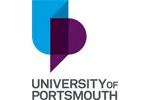We're moving! This site will be relocating to goingto.university in 2026. Please update your bookmarks to the new address.


| The award | How you will study | Study duration | Course start | Domestic course fees | International course fees |
|---|---|---|---|---|---|
| BSc (Hons) | Full-time, Sandwich | 3 - 4 years | September | - | - |
Overview
Discover life at its most fundamental level.
On this BSc (Hons) Biochemistry degree, accredited by the Royal Society of Biology (RSB), you’ll learn how biochemists fight disease, edit genomes, understand human and animal development and apply synthetic biology to current problems in biotechnology.
By exploring the latest scientific theory through lab training, you'll gain the skills and expertise to become a professional biochemist and apply for Associate Membership of the RSB on graduation.
Course highlights
Careers and opportunities
Biochemistry is the study of the chemistry within living things – everything from humans and animals, to plants and cells. It combines biology, chemistry and molecular analysis to develop new approaches within many scientific fields, including healthcare and medicine, agriculture, biotechnology and the environment.
This means there is a huge range of sectors you can go into with a biochemistry degree, and there will always be a high demand for your skills.
Once you complete your BSc (Hons) Biochemistry, you’ll be ready for a career in scientific research, forensic science or pharmaceuticals. With specialist modules like Business for Biosciences and Mechanisms of Development, you’ll have many opportunities to discover your niche.
In the UK, you could earn an average of £24 000 as a newly-graduated biochemist and an average of up to £50 000 with more experience.
What can you do with a biochemistry degree?
There are many career paths a BSc (Hons) Biochemistry degree can lead you to.
Previous students have gone on to do valuable work in fields such as:
Graduates have gone on to work in roles including:
Graduate destinations
Organisations our graduates have gone on to work in include:
Placement year (optional)
After your second year, you can do an optional work placement year to get valuable longer-term work experience in the industry. Placements give you the opportunity to apply what you've learnt so far in a real workplace, boosting your employability and making you attractive to employers after graduation.
You can work for a company or organisation here in the UK or overseas, or you could go independent by setting up and running your own business with other students.
Whichever route you choose, you'll receive support and guidance. Our specialist team of Science and Health Careers advisors can help you with finding a work placement and improving your employability skills. They'll provide you with a database of placement vacancies, support with your job search – including help with applications and interviews – and support throughout your placement year.
Summer research placement
You'll also have the opportunity to apply to a study exchange scheme, which involves a summer research placement at a European university.
Ongoing career support – up to 5 years after you graduate
Get experience while you study, with support to find part-time jobs, volunteering opportunities, and work experience.
Towards the end of your degree and for up to five years after graduation, you’ll receive one-to-one support from our Graduate Recruitment Consultancy to help you find your perfect role.
https://www.port.ac.uk/study/undergraduate/undergraduate-fees-and-student-finance
112-120 points to include 3 A levels, or equivalent, including either biology or chemistry.
For A levels which include a separate science practical component, a pass is desirable and may strengthen an application.
English language proficiency at a minimum of IELTS band 6.0 with no component score below 5.5.
Below are some suggested courses at other providers that you may also be interested in:
Masterclass Blockchain Infrastructure & Network Administrator Certificate
Howest University of Applied Sciences
Find out moreCinema and Series on Audiovisual Platforms: Production, Communication and Programming Master Degree
IULM University of Milan
Find out moreEcology, Evolution, and Environmental Biology Certificate
Columbia University, School of Professional Studies
Find out moreConsider a Foundation or Pathway course at University of Portsmouth to prepare for your chosen course:
If you do not meet the entry requirements for this course then consider one of these courses from another institution:
There are 529 other courses listed from University of Portsmouth. A selection of these are displayed below:
Join the StudyLink email list and never miss a chance to turn your study abroad dreams into reality!

Find out more about studying in the United Kingdom